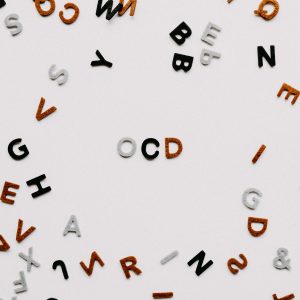Sometimes, medical conditions have symptoms that overlap with one another. These medical conditions can also have overlapping symptoms with some mental conditions. Therefore, it can make it confusing to differentiate from one condition versus another condition. Two conditions that are often confused with one another are hypochondria and anxiety. Though they have some similarities, the two conditions definitely have key differences that make it easy to differentiate between them.
Here are the 7 key differences between being a hypochondriac vs. anxiety:
Hypochondria is characterized by an excessive and persistent fear of having a serious disease. Anxiety is characterized by a general feeling of unease, worry, or stress.
Hypochondria is characterized by an excessive and persistent fear of having a serious disease. Conversely, anxiety is characterized by a general feeling of unease, worry, or stress. People with hypochondria may be preoccupied with their physical health. They may obsessively check their body for signs of illness, even when there are no apparent physical symptoms. They may also avoid seeking medical help, as they fear that their worst fears will be confirmed. As a result, their anxiety and fear can become so severe that it interferes with their daily life. People with anxiety may also have physical symptoms, such as a racing heart, sweating, and difficulty breathing. These are typically caused by the anxiety itself, rather than by a underlying medical condition.
People with hypochondria tend to focus on a specific body part or symptom. However, people with anxiety may experience a range of physical and psychological symptoms.
People with hypochondria often focus on a specific body part or symptom. However, people with anxiety may experience a range of physical and psychological symptoms. For example, a person with hypochondria may be fixated on the idea that they have a serious heart condition, even if they have no medical evidence to support this belief. In contrast, a person with anxiety may experience a range of symptoms such as heart palpitations, sweating, and difficulty breathing, which may be triggered by a variety of things such as work stress or social situations. While both conditions can be debilitating, hypochondria tends to be more chronic. People with hypochondria may spend a lot of time and energy worrying about their health, even when there is no reason to do so.
Hypochondria is often accompanied by feelings of guilt. Anxiety may be accompanied by feelings of dread.
Many hypochondriacs feel guilty about the fact that they keep worrying about having a medical condition. They feel guilty about going to the doctor’s office, or asking their friends and family for reassurance. They may also feel guilty worrying about having a medical condition when they have people in their lives who struggle with a diagnosed medical condition. People with anxiety, on the other hand, are more so plagued with feelings of dread. They may have dread when they get out of bed and worry about what is going to happen to them that day. They may also have dread when they think about entering into certain situations.
Hypochondria may lead to avoidance of medical care. Anxiety may lead to avoidance of certain situations or activities.
Hypochondria, or health anxiety, is characterized by excessive worry about one’s health. This worry can lead to avoidance of medical care, as sufferers may believe that they will find out that they are seriously ill. Anxiety, on the other hand, is characterized by feelings of fear, worry, and unease. This may lead to avoidance of certain situations or activities. Sufferers may believe that they will experience anxiety or panic attacks when they are out in public. Individuals who have anxiety might want to avoid certain situations that will exacerbate their anxiety.
Hypochondria is often chronic and can last for years, while anxiety may be more short-lived and episodic.
Often, hypochondria is often chronic and can last for years, while anxiety may be more short-lived and episodic. Hypochondria is characterized by excessive worry about one’s health, even when there is no evidence of any physical illness. People with hypochondria may be preoccupied with the idea that they have a serious disease. They may be constantly checking their body for signs of illness. Anxiety, on the other hand, is a normal response to stress and can be triggered by a variety of factors, such as work or family problems. Anxiety is usually short-lived and does not last for years like hypochondria.
Hypochondria can be debilitating and interfere with daily activities, while situational anxiety may cause milder symptoms that do not significantly impair functioning.
When you are comparing hypochondria with situational anxiety, they differ greatly in the effects they have on people. Situational anxiety tends to be a short-term emotional response to a situation that could be considered as distressing, embarrassing, or worrisome. When somebody has situational anxiety, their symptoms are often much milder. Usually, they do not significantly impair functioning on a day-to-day basis. On the contrast, hypochondria can be a debilitating condition that interferes with daily activities, if somebody has been dealing with it for several weeks, months, or even years. Many hypochondriacs find it hard to function when they are in a flare-up of worrying about a specific condition, illness, or injury.
Hypochondria responds most effectively to therapy, while chronic anxiety can respond most effectively to both medication and therapy.
While hypochondria can sometimes be a form of anxiety, there are ways that chronic anxiety and hypochondria differ in terms of their most effective treatment methods. Hypochondria responds very effectively to therapy, more specifically, cognitive-behavioral therapy. This type of therapy allows the hypochondriac to change their negative thought patterns surrounding their health with the help of a therapist. With chronic anxiety, both medication and therapy can be effective treatments. Many chronic anxiety patients find help through the use of an anti-depressant prescribed by their psychiatrist. Other chronic anxiety patients find success through the use of therapy as a treatment. The most common types of therapy used for anxiety are cognitive-behavioral therapy and talk therapy.
Disclaimer: THIS WEBSITE DOES NOT PROVIDE MEDICAL ADVICE.
If you are currently experiencing medical concerns, it’s important to talk to a doctor to rule out any underlying medical conditions. HypochondriacHQ does not substitute professional medical advice or consultations with healthcare professionals. Never disregard professional medical advice or delay in seeking it because of something you have read or seen on this website.




